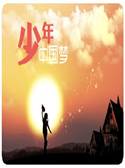Recently the “China dream” has been the subject of a public topic. Although it is quite common for Chinese people to dream of an empowered or a prosperous(繁荣) China, most people also have their own dreams. Throughout China’s thousands of years of history, these “China dreams” have always existed. Do you have a “China dream”? I brought up this topic with several young Chinese students with higher U.S. educational backgrounds. Unsurprisingly, they all had their own heartfelt hopes and dreams for their native country.

Fred Wang, an MBA candidate in the U.S. said, “I dream of equal chance for the young in China. Equality means all young people can
compete fairly, based on the rule-of-law no matter whether they are rich or poor.”
Yujie Zhao, another MBA candidate in California said, “I dream of a happy family with an affordable home. I dream of having the best education for my children so they will not lose at the starting line, and I dream of being able to take good care of my parents after they retire(退休).” She said, “It seems like all my dreams are about family, but it is so true for most Chinese young dreamers today.”
Yiqiong Zhang, an MBA graduate from the US shared her dreams. “I have a dream which I have been holding for many years, that is after working hard for about 20 to 25 years, I can have enough money to build and manage a small bookstore or a flower shop. Besides working hard, I am able to enjoy life: to play the piano, to hike and to enjoy a two-month-long vacation every year. This may be a common dream among young Chinese students.”
There is no doubt that all of these young students have their own “China dream”. They all love China, they all love chasing their dreams. Beautiful “China Dream” requires hard work. Everyone should work hard to make their dream come true.
小题1:Which is right about the three young Chinese students?
| A.They receive higher education in China. |
| B.They have their own hopes and dreams for China. |
| C.They receive education of all levels in America. |
| D.They have their own hopes and dreams for America. |
小题2:What does the word “compete” in the second paragraph mean?
小题3:Yujie Zhao hopes that ___________.
| A.all young people can have equal opportunities |
| B.she can have a happy family with a big house |
| C.her children can receive the best education in America |
| D.she can look after her parents well when they are old |
小题4:Which one is NOT Yiqiong Zhang’s dream?
| A.Working hard for about 20 to 25 years. |
| B.Managing a small bookstore or a flower shop. |
| C.Playing the piano and hiking in her free time. |
| D.Having a two-month holiday every year. |
小题5:From the passage we can learn that ____________.
| A.“China Dream” is very difficult to come true. |
| B.“China Dream” does need everyone’s hard work. |
| C.“China Dream” is a subject we need to study in China. |
| D.“China Dream” is only a dream about the development of our country. |

